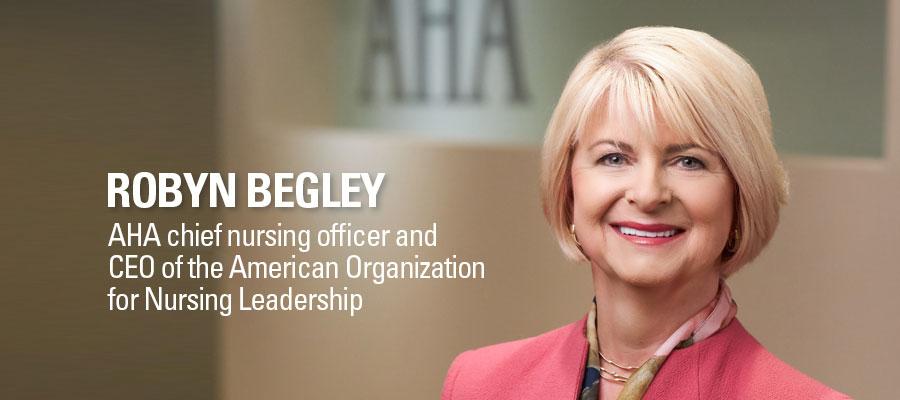AONL CEO on how to help combat the nursing shortage

As a health care leader, you have likely heard that with aging patient populations, retiring nurses and growing rates of chronic disease, America’s nursing shortage is getting worse, with 1.2 million registered nurse vacancies expected by 20221.
Contributing to this trend is another, less talked-about shortage: nursing educators. Because of this workforce gap, nursing programs must turn away qualified candidates each year, restricting the number of nurses entering the workforce.
It comes down to resources. Nurse educators’ wages simply have not kept up with those of nurses in the clinical setting over time. An experienced nurse educator who holds, at a minimum, a master’s degree, might command the same salary as an entry level nurse.
In my time as a nurse leader, many nurses have expressed to me that they would love to pursue advanced degrees and then teach — if they only could afford the pay cut. This especially impacts nurses with student loans.
We need to do better by our field, our educators and our patients.
That’s why the AHA and the American Organization for Nursing Leadership (AONL) support the Title VIII Nursing Workforce Reauthorization Act (S. 1399, H.R. 728). This legislation is the most important federal funding stream for educating America’s nurses. It allows for loan forgiveness for those nurses willing to teach while providing scholarship programs to economically challenged individuals to pursue a nursing career. Title VIII also supports nurses who want to pursue advanced practice and doctoral degrees.
Learn more about the Nursing Workforce Development programs.
While the legislation has bi-partisan support in both chambers of Congress, we need your help getting more co-sponsors. Contact your legislators and let them know how the nursing shortage is affecting your organization’s ability to care for patients. It is important they hear about this national issue from a local perspective. Tell them about the challenges you face recruiting nurses.
While some might consider nurse education gaps only a nursing issue, the truth is it affects everyone who works in or touched by health care. Please share your story with your local legislators.
[1] Footnote: “U.S. still headed for nurse shortage,” Sally Jimenez, Nurse.com, Feb. 16, 2016

